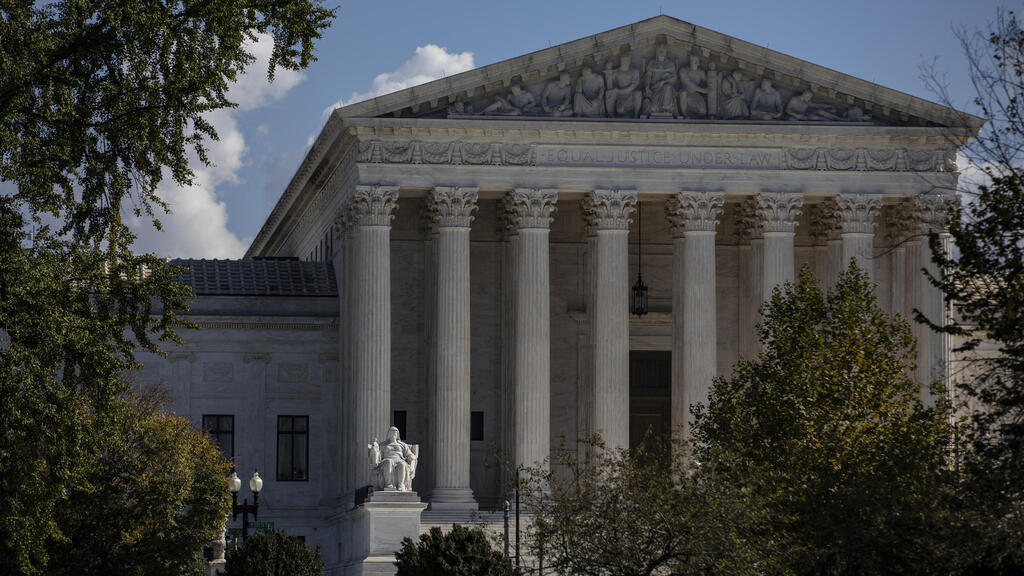Getting your Trinity Audio player ready...
The United States Supreme Court is set to hear two Holocaust restitution-related cases on December 7 in what could prove to be a landmark case in the prosecution of crimes that occurred overseas and in which there was no direct American involvement.
Usually, foreign governments cannot be sued in U.S. courts, although there are provisions if the crimes of which they stand accused include either acts of terrorism or property confiscation violating international law.
2 View gallery


A visitor looks at the cupola reliquary (Kuppelreliquar) of the so-called "Welfenschatz" (Guelph Treasure) displayed at the Kunstgewerbemuseum (Museum of Decorative Arts) in Berlin
(Photo: TPS)
"The court will decide if the United States has the jurisdiction, in accordance with the 1976 Foreign Sovereign Immunities Act, to rule about crimes that happened abroad where there was no American involvement," reported the Jewish News Syndicate (JNS).
The plaintiffs in both cases, Federal Republic of Germany v. Philipp and Republic of Hungary v. Simon, will seek to have their cases heard based on the latter.
"In Federal Republic of Germany v. Philipp, the Supreme Court will hear the case about a German art museum and whether or not a treasure trove known as the 'Guelph Treasure' (or 'Welfenschatz') should be returned to the heirs of four Jewish art dealers in Germany," JNS cited.
The dealers have argued that they were forced to sell the collection - now estimated to be worth approximately $225 million - to the Nazi-controlled Prussian government in 1935 in what they called a “genocidal taking.”
On May 26, then-U.S. Solicitor General Noel Francisco argued that the heirs have failed to make the case, citing that the Nazi seizure of the art was "domestic."
He further maintained that the 2016 Holocaust Expropriated Art Recovery (HEAR) Act, did not create a "cause of action in U.S. courts," for the heirs' case.
Jeremy Rabkin, a constitutional and international law professor at the Antonin Scalia Law School at George Mason University, defined two potentially significant problems with the cases.
In the first instance, he suggested that even if SCOTUS ruled in the plaintiffs' favor - which he thought unlikely - the case would probably get kicked back down to lower courts and could engender years of legal wrangling at the end of which there may be no restitution.
He also cautioned that a victorious decision might be something that Arab claimants who assert that the Israel Defense Forces in 1947 or 1948 drove them from their homes during Israel's fight to declare independence.
Article republished with permission from i24NEWS


